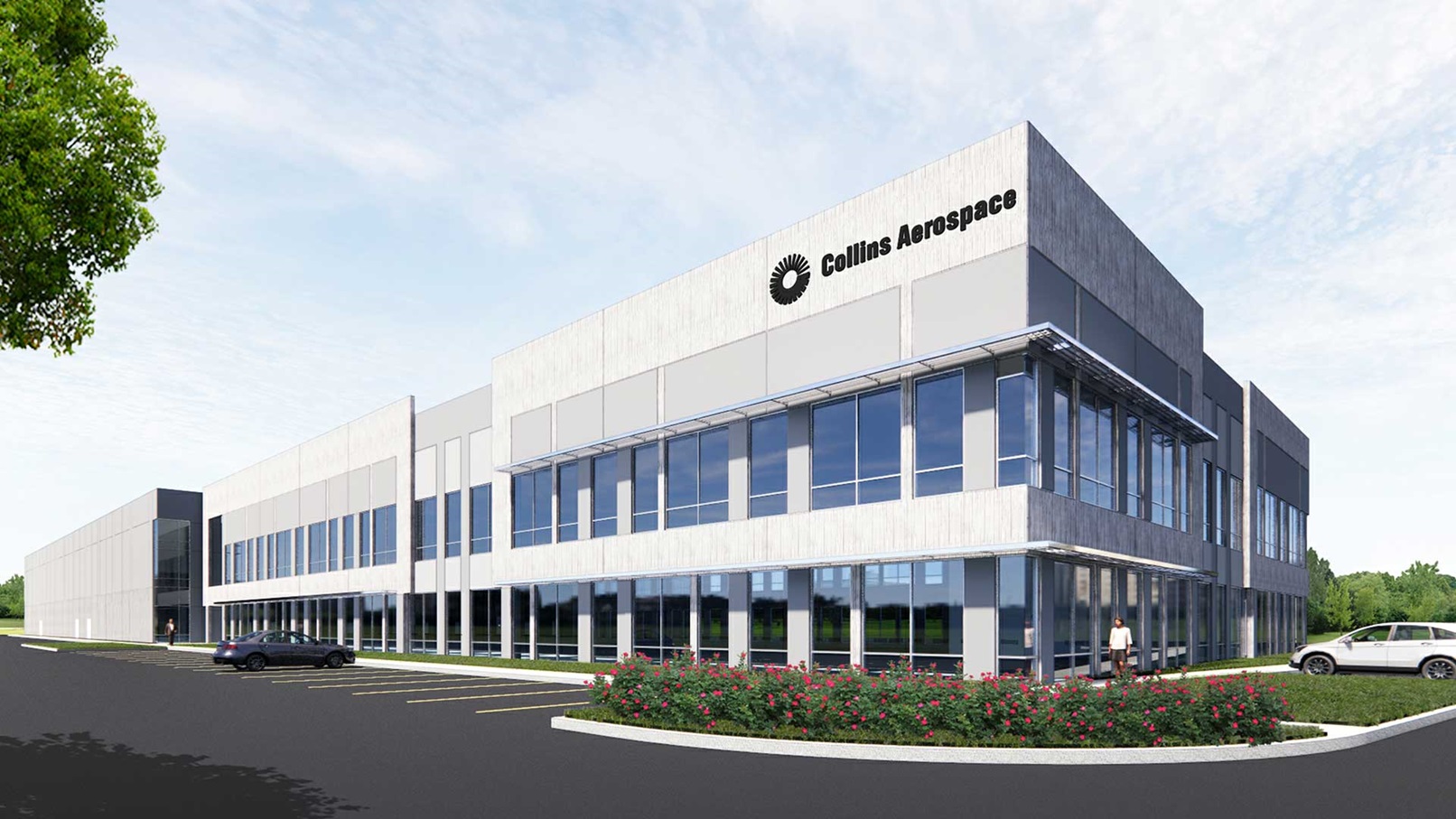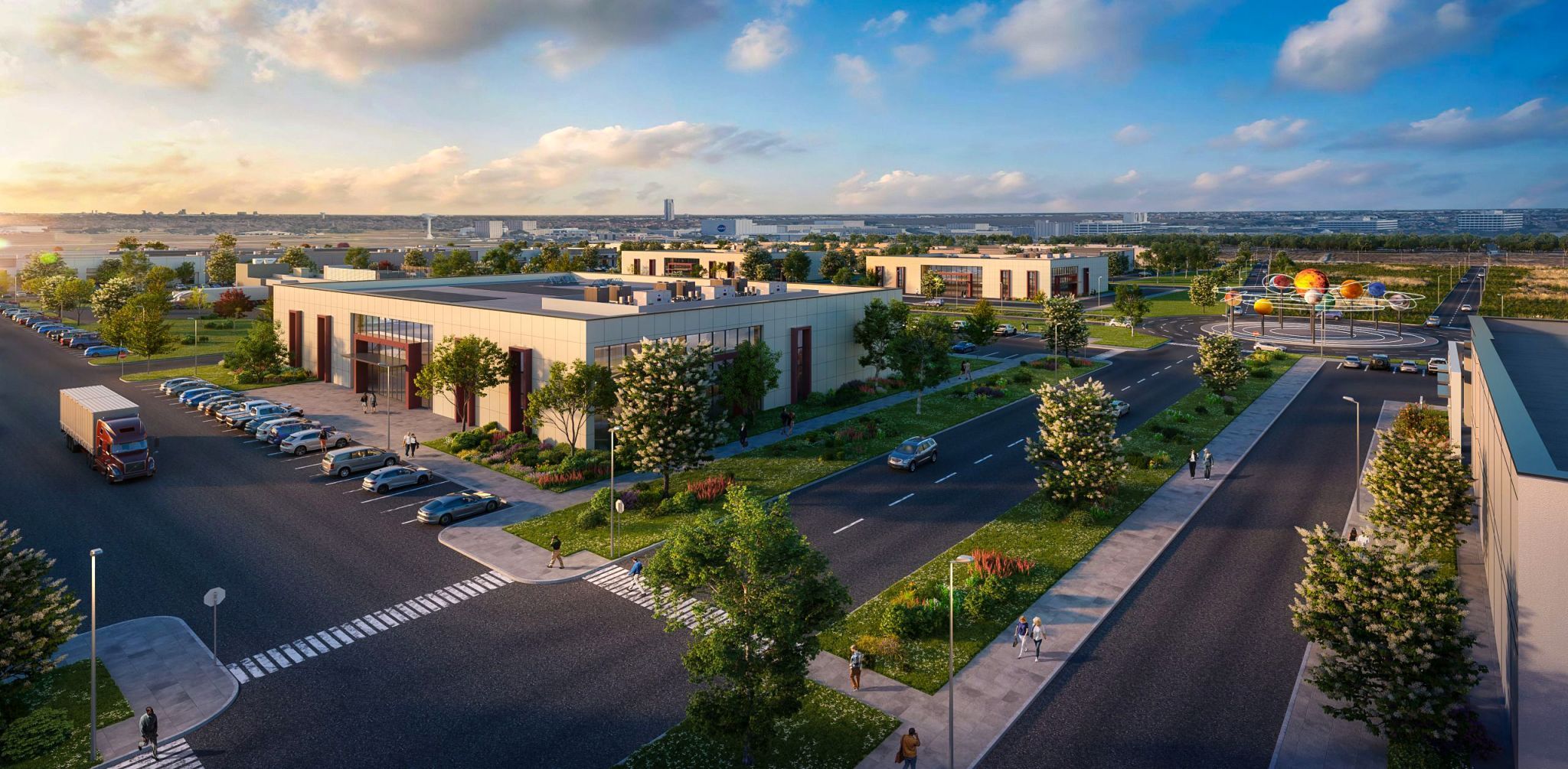Collins Aerospace to Build New Facility at Houston Spaceport
Published May 20, 2021 by A.J. Mistretta
Houston Spaceport is getting a new tenant that will host Houston’s first spaceflight incubator.
Collins Aerospace, a unit of Raytheon Technologies, said it will occupy an eight-acre, 120,000-square-foot campus that will support spaceflight and house the incubator. The Houston Chronicle reports the project will break ground in June, with construction slated to wrap up by the end of next year.
The new campus will continue to be part of the company’s Mission Systems business, one of six strategic business units of Collins Aerospace. The 10,000 square-foot spaceflight incubator will create space for startups and universities to collaborate on solving critical space technology challenges, including robotics, medicine and additive manufacturing.
Houston Spaceport at Ellington Airport is one of only a handful of commercially licensed spaceports around the country. The facility, located 20 miles south of Downtown Houston, is being built out in multiple phases by the Houston Airport System in collaboration with private sector tenants. Its proximity to NASA Johnson Space Center is a draw for many companies looking to work with, and build off of, NASA technology.
“On behalf of Collins Aerospace, I would like to thank the City of Houston, Houston Airports and Bay Area Houston Economic Partnership for creating a robust business climate and for their strong support of this important expansion of our business,” said Phil Jasper, President of Collins Aerospace’s Mission Systems business unit. “Building on our 40 years in the Houston community, this expansion will further strengthen collaboration with our customer to support spaceflight.”
As an anchor tenant of Houston Spaceport, Collins Aerospace will receive up to $25.6 million in financing from Houston Airports for capital improvements. The amount financed will be reimbursed by Collins Aerospace. Collins Aerospace currently has a facility in Houston, which is at capacity, that develops and produces systems for NASA’s human-manned space flight programs.
“Collins Aerospace’s new campus is yet another game-changer for Houston as we position our region as one of the country’s leading next-generation tech and aerospace hubs,” said Houston Mayor Sylvester Turner. “We are leveraging Houston’s many advantages, including our dynamic workforce, to fuel the future of aerospace— a potentially trillion-dollar, 21st-century commercial space economy.”
Bay Area Houston Economic Partnership President Bob Mitchell said his organization has worked very closely with the aerospace community in Houston over the last four decades to help the industry cluster continue to be successful. “The work Collins Aerospace has brought to Houston for nearly 40 years has provided valuable aerospace career opportunities for Houstonians,” he added.
This is the second major announcement for the Houston Spaceport in recent months. In December, Axiom Space announced plans to build a 14-acre headquarters campus there to develop its Axiom Station, the world’s first free-flying, private space station. That project is expected to bring more than 1,000 jobs to Spaceport and will include a 322,000-square-foot facility to accommodate Axiom Station modules as well as terminal space to house private astronauts, operations, engineering and related activities.
Learn more about Houston's aerospace industry.
 The Houston Report
The Houston Report




















